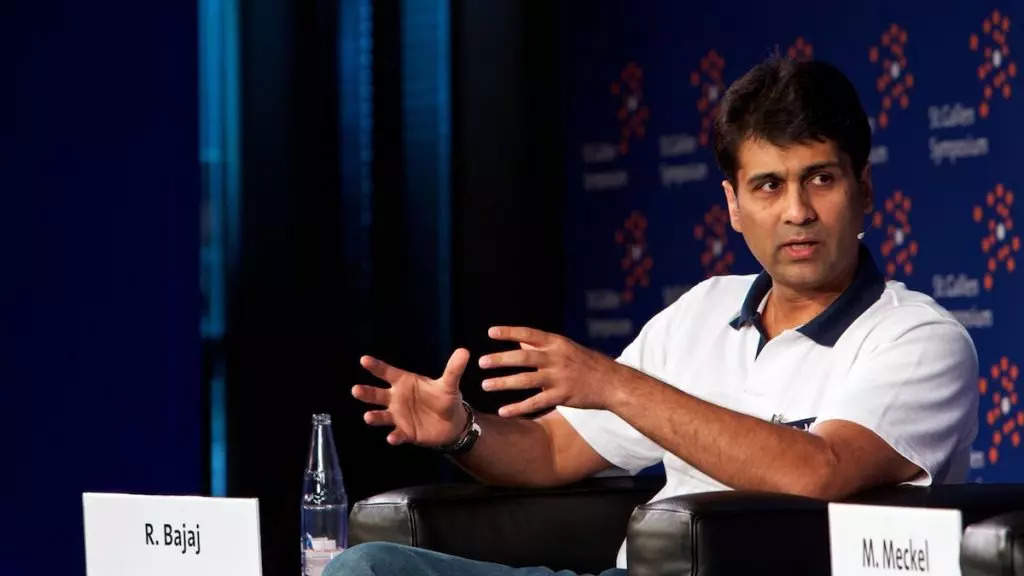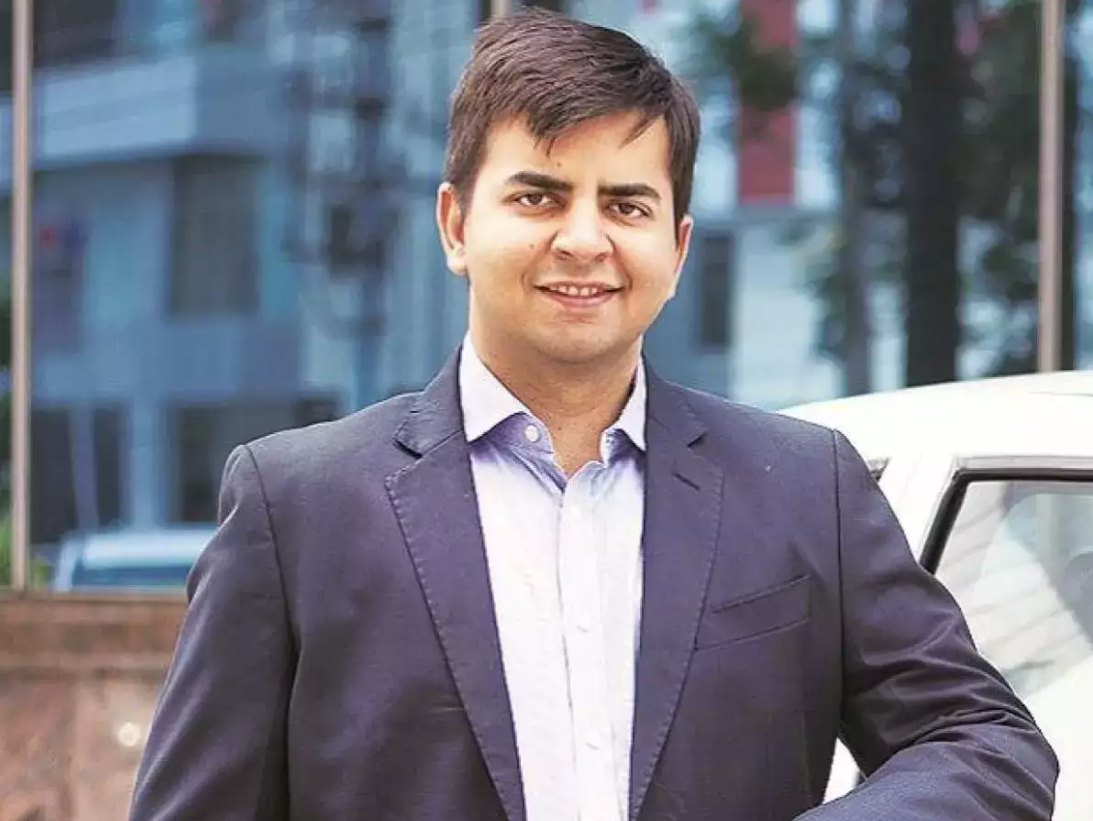
The gloves are off. The fight between legacy automakers and new age startups in the domestic two wheeler industry is getting more and more feisty.
At the launch of the new Bajaj Pulsar in Pune on Thursday, Bajaj Auto managing director Rajiv Bajaj who is known to pull no punches, fired a number of salvos directed mostly at Bhavish Aggarwal’s Ola Electric berating startups for taking incumbents lightly. Bajaj likened his company alongwith TVS and Royal Enfield as the champions with a proven track record who have demonstrated their ability to adapt in the past and would do the same in future. He cheekily added champions consume OATS (Ola, Ather, Tork and Smart E) for breakfast.
“The sign of a champion is that you are able to adapt. We are a 75 year old company and have adapted over and over again. Sometimes it is because of the shift from scooters to motorcycles, sometimes it is new regulations, or competition or maybe cost. Or it may be electric disruption,” Bajaj said. “Good Indian two wheeler companies are not really as lightweight as maybe some startups would like to think. So who are you going to bet on? Are you going to bet on the legacy companies as you call us or the startups? I would bet on BET which stands for Bajaj Enfield and TVS. They are champions and they have demonstrated it with a track record.”
The sign of a champion is that you are able to adapt. We are a 75 year old company and have adapted over and over again. Sometimes it is because of the shift from scooters to motorcycles, sometimes it is new regulations, or competition or maybe cost. Or it may be electric disruptionRajiv Bajaj, Managing director, Bajaj Auto
“There is a saying breakfast of the champions. Champions eat OATS for breakfast. OATS stands for Ola Ather, Tork and Smart E,” he added. “Indian two wheeler makers have battled the Japanese very successfully. In the 150cc above sports motorcycle category, Enfield, Bajaj and TVS have 70-80 percent share. We are not lightweight.”
A surge in demand for electric vehicles in India in the last few months on the back of favourable government policies and surging fuel prices especially in the two wheeler space, coupled with a perceived reluctance by mass market two wheeler firms like Hero MotoCrop, Honda, TVS, Bajaj, Yamaha and Royal Enfield has provided an opening for startups to exploit.
Of the lot, Bhavish Aggarwal of Ola has made the biggest noise promising massive scale of upto 10 million units per year and regularly criticising legacy players for not doing enough to accelerate the shift to electric mobility. As a counter, Bajaj took a dig at Ola referring to the delays in delivering its scooters. Some consumers who booked Ola’s electric scooters in July this year are slated to get hold of the vehicles not before February next year. Ola is yet to deliver even one scooter in the market.

“If we launch a motorcycle in October, you will get it in November. It is not that if we launch in 2021 you will have to wait till 2022. That is the startup way. That is not the legacy way,” he said. “Their business model is cash burn model. Our’s is a cash flow model. We have to make sure we make money when we make a motorcycle. So ofcourse we operate very differently. There are startups that we respect. There is Ather that we enormously respect because they have demonstrated capability.”
“The biggest one is Ola. We have to still see them produce and sell something. I am not being sarcastic. Simply stating a fact.”
The war of words isn’t new and Bajaj is not the only one to hit at the cash burn model of startups. Earlier this year, Hero MotoCorp’s Chairman, MD and CEO Pawan Munjal had said he wouldn’t hesitate to burn cash like startups if needed.
“We may be the so-called established player — the old guard. Having said that, if and when it comes to playing the right type of game, we will become a startup. In many ways right now, many teams within the EV programme are working like startups,” Munjal had said. “In case the market is disrupted in a manner that we are required to do that (engage in cash-burn) to get into the market with pricing where we have to become aggressive and get a fair share, then we will do it.”
Aggarwal on his part has countered that startups are more than just cash burn and insisted that Ola would be profitable soon.
..We are a company with a very rich past, a strong track record and a rich legacy. It is this credibility that gives us a solid foundation to make a foray into the futureRajiv Bajaj, Managing Director, Bajaj Auto
“Startup is not about cash burn. It is about innovation and speed,” Aggarwal said in August. “We would be the most efficient automaker in the country. The established two wheeler industry has invested so much money on the shift to BS VI emission norms. Somebody should ask them about the efficiency of that too. Eventually we will be profitable too. Not on day one but very soon.”
There is no denying Ola Electric’s big bang entry into the electric two wheeler space has created a flutter. The scale of its investment and operations–it is spending Rs 2400 crore on a factory that will ultimately be able to produce 10 million electric two wheelers every year, has forced everybody to take note of them. That capacity is almost 50 percent of the country’s overall two wheeler sales today. On his part, Aggarwal has taken a number of digs at the incumbents himself in the last few months.
“The two wheeler industry should completely reject petrol and commit to EVs now. There is absolutely no reason not to,” he said while unveiling his scooter for the first time in August. “Around 20 million two wheelers are sold in India every year today which makes us the second largest market worldwide. But the penetration is still only 12 percent, which means there is significant upside for growth. If we keep churning out fossil fuel vehicles imagine how much vehicular pollution it will cause by the end of this decade. It would be 5 times today. We cannot afford that.”
“The incumbents have not properly invested in electrification. Whether they like it or not, the EV revolution is here to stay and from today onwards it will only get stronger,” he had added. “There are a lot of naysayers but we have to do it,” Aggarwal said. “Its a fallacy. The market and consumers are ready. It is the companies that are not ready. So they are making excuses. The consumer has already moved on in their minds. Before we even realise it, people would only be buying EVs in India.”
This is not the first time that Bajaj has taken a shot at startups or any new player in the EV space either. Two years back while launching his first electric offering–the Chetak, he let loose on the many disparate companies that had begun to enter the EV category.
“We are engineers who do our own work. We are not a battery or a steel maker or a failed two-wheeler company. We are a company with a very rich past, a strong track record and a rich legacy. It is this credibility that gives us a solid foundation to make a foray into the future,” Bajaj had said then. “Sometimes when it comes to creating new things there is anxiety whether it will work. In the context of EVs the question is on whether the customer is ready, in charging infrastructure, and whether it is viable and practical.”
With the first of the Ola scooters set to hit the roads in November, expect more war of words in times to come. In Bajaj’s own words “picture abhi baaki hai.”
Also Read:

















